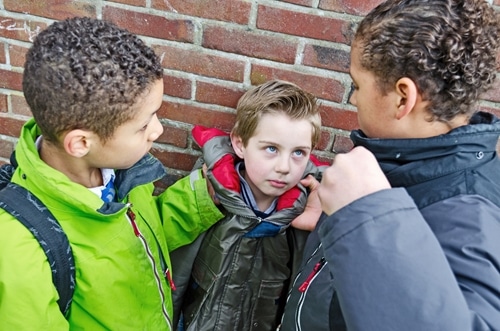Risky behavior is more likely among bullies and bullying victims
Children who participate in martial arts classes at a young age quickly learn the importance of respecting others. These values can often lead to much more important life lessons than the self-defense techniques taught to them. Many martial arts classes stress bullying prevention and teach children what to do if they are being picked on.
With a martial arts background, kids are far less likely to bully others. Bullying has been know to lead to other types of risky behaviors. A new study by researchers at the Boston University School of Education that appeared in a recent issue of the American Academy of Pediatrics’ journal shows that bullies, or victims of bullying, are more likely to engage in more risky sexual encounters.
Melissa K. Holt is an assistant professor in counseling psychology at the Boston University School of Education. Melissa stated, “Research found that aggression relates to sexual risk-taking. Which is surprising that bullies and bully-victims report more sexual risk-taking than their peers.”
Bullies, and those bullied, are more likely to act out
Researchers included nearly 9,000 high school students from 24 schools took part in a survey about bullying and sexual behavior. While only 6 percent admitted to bullying, 25 percent of those students said they have casual sex. And more than one-third have had sex when they are high or drunk, Reuters reported.
Six percent of students said they have been the bully, as well as a bullying victim. Of those respondents, 20 percent engaged in casual sex and 23 percent admitted to having sex under the influence. Only 7 percent of the 80 percent of students who said they were not bullied or acted as bullies had sex with people they didn’t know well. It is clear that bullying can have a real affect on the decision-making of high school students when it comes to sex.
“The bottom line is that bullying behavior is something that parents and teachers should be concerned about, both because of the deleterious effects of bullying itself, but also because of its association with other problems such as substance use, other aggressive behavior, criminal involvement, as well as depression and suicidality,” Amanda Nickerson, the director of the Alberti Center for Bullying Abuse Prevention at the University at Buffalo, State University of New York, told Reuters.
